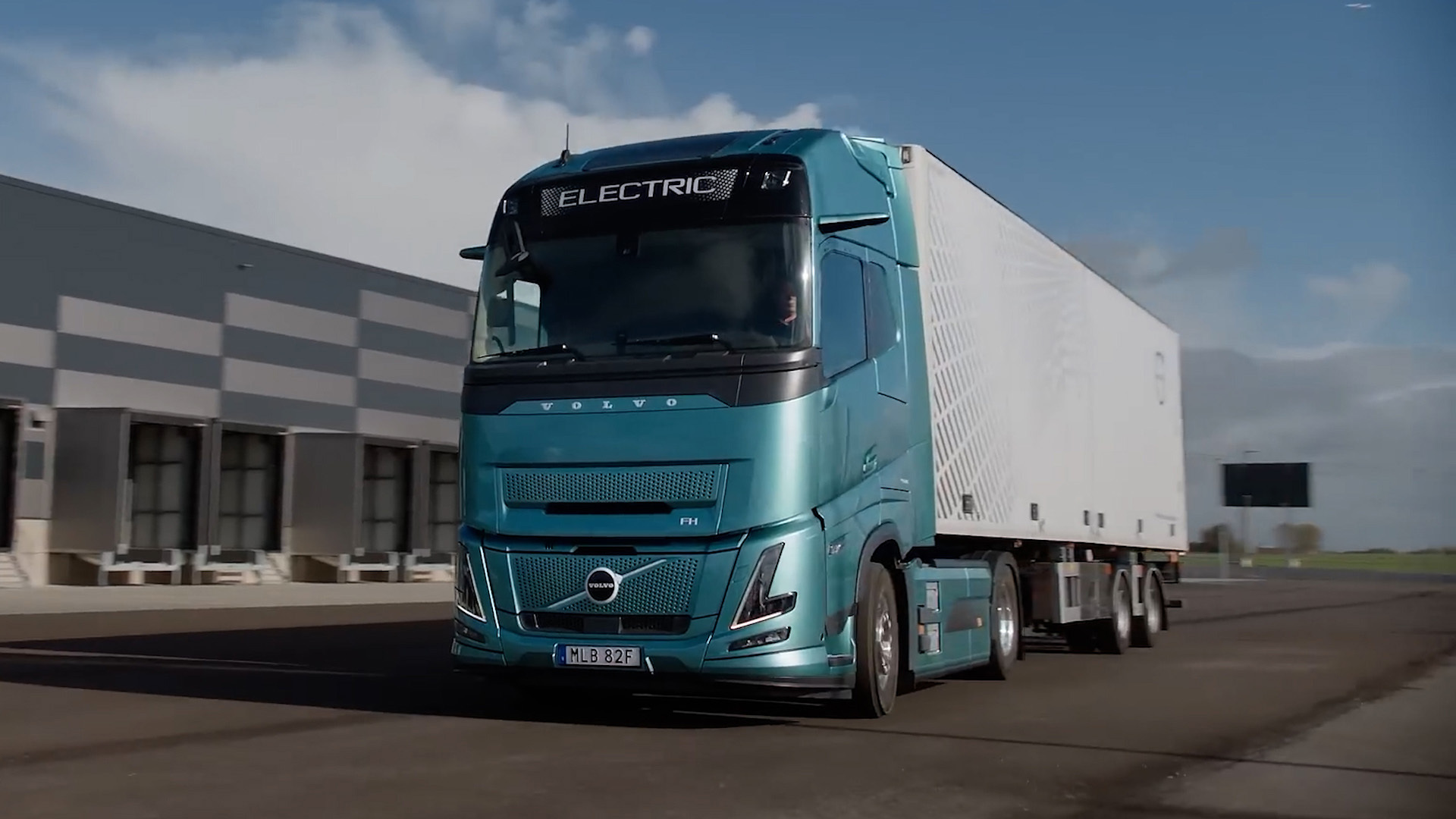
[JACK AYLMER]
Heavy duty trucks are one of the transportation sector’s biggest polluters. Electrifying them to cut down on greenhouse gas output has been a challenge, largely due to the extensive distances these big rigs have to cover which current EV battery tech just can’t do just yet. Something Volvo is trying to change.
Currently, the average EV battery range tops out at about 300 miles. But most truck drivers are on the road for around 500 miles every day, and with charging ports not nearly as frequent a sight as gas stations on U.S. highways, this presents some logistical problems for going electric.
Volvo’s solution: add more batteries. Traditionally, a simple sounding fix like this hasn’t worked because of the sheer weight of an EV battery. Putting more into a vehicle generally reduces range as the load that needs to be carried gets heavier. However, Volvo’s eight battery truck is made possible by the automaker’s new driveline technology. This works by combining the electric motor and transmission into the rear axle, freeing up more space for a larger battery capacity.
The added batteries help up a Volvo truck’s range to just over 370 miles, a nearly 20 percent increase over the industry standard. But EV battery tech still has a long way to go before it can rival the performance of a diesel truck engine, which gets an average of 2,000 miles on a single tank.
For more stories about how EV tech is stacking up against gas-powered models, download the Straight Arrow News app and sign up for alerts from me – Jack Aylmer.









